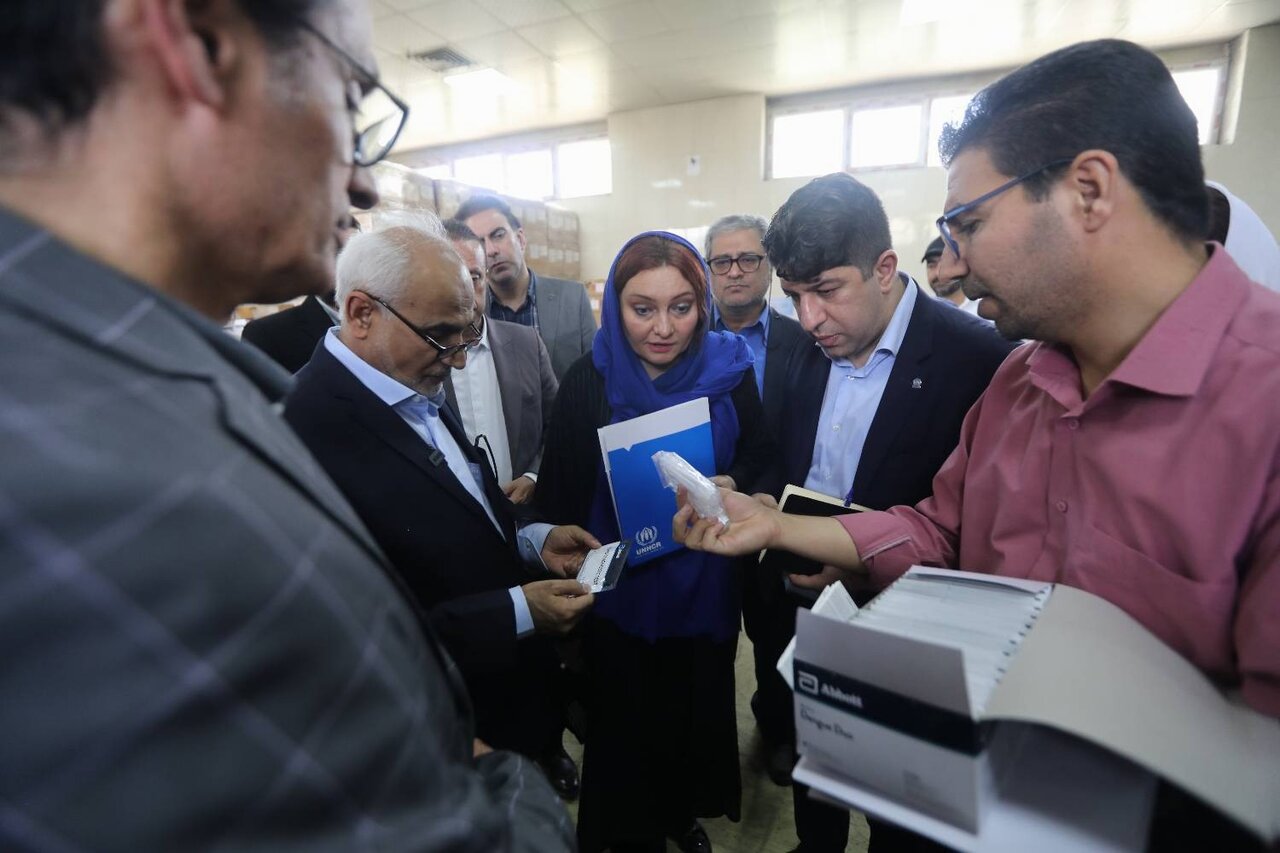Iran’s healthcare services to refugees are praiseworthy: UNHCR official

TEHRAN – Inna Gladkova, the officer in charge of the United Nations High Commissioner for Refugees (UNHCR) in Iran, has lauded the healthcare services provided to authorized refugees throughout the country.
Iran is one of the major refugee-hosting countries, she highlighted while distributing medical supplies provided by international organizations to the health ministry.
Over forty years of cooperation between Iran and the UNHCR has resulted in conducting fruitful large-scale projects, Gladkova stressed.
Medical supplies are procured based on the needs of the host country and the refugees’ needs. Lauding taken measures by Iran to eradicate hepatitis C, she said that these medical items will be of great help in managing communicable diseases.
“Donated supplies have been distributed with precision in healthcare centers nationwide to be used by both host country and refugees. We hope enhancement of cooperation in providing humanitarian aid further boost Iran’s hospitality,” she stated.
According to UNHCR, Iran hosts an estimated 3.8 million Afghan refugees and those in refugee-like situations who have access to national services under Iran’s inclusive policies.
Iran’s support for refugees
Iran’s support for refugees is demonstrated through its inclusive policies, which encompass protection, assistance, education, and healthcare, inspiring the global community and positively impacting the lives of refugees.
As the second-largest refugee-hosting country, Iran is currently host to one of the largest and most protracted refugee populations in the world, the majority of whom are Afghan refugees.
The country is home to over 800,000 registered refugees and some 2.6 million undocumented Afghans.
Currently, more than 500,000 Afghan children - including undocumented Afghans and those who have newly arrived in Iran following the Taliban takeover - are benefitting from Iran’s inclusive education policies, one of the most progressive in the world.
In total, Iran hosts some 4.5 million Afghans of varying status – including resident permit holders, undocumented Afghans, and family passport holders – many of whom have been in the country for an extended period and require support to strengthen their resilience.
Iran’s generous and exceptional services for refugees despite unfair economic sanctions have exceeded expectations and international responsibilities.
The government of Iran has made a very generous effort to provide services to millions of refugees and foreign nationals despite difficult living conditions and oppressive economic sanctions imposed on the country.
Free health insurance for certain refugees
In February, the managing director of the Iran Health Insurance Organization said about 200,000 foreign nationals in the country have been provided with free health insurance with the financial support of the United Nations High Commissioner for Refugees.
Foreign nationals who are considered financially struggling can benefit from free health insurance services, Mehr news agency quoted Mohammad-Mehdi Nasehi as saying.
Stating that the number of refugees in the country is far more than the number of people who have been covered by free insurance, Nasehi added that legal refugees can enjoy insurance services by paying their insurance premiums.
In November 2023, Jamshid Shayanfar, an official with the Health Insurance Organization of Iran said some 95,000 foreign nationals who hold legal residence permits and are suffering from hard-to-cure diseases receive free health insurance annually.
Their insurance contract will be renewed every year in the month of Esfand – the last Iranian calendar month ending on March 19, Fars quoted Shayanfar as saying.
He added, “The insurance premiums for these people are covered by the High Commissioner for Refugees, and the insurance premiums for about 60,000 citizens are paid to the health insurance organization based on the government budget.”
Shayanfar went on to say that around 800,000 non-vulnerable nationals also have to pay their own insurance premiums; once they pay the insurance premium, they will enjoy health insurance services for a year.
Some 12,000 non-vulnerable nationals have already been covered by health insurance, he concluded.
MT/MG
Leave a Comment